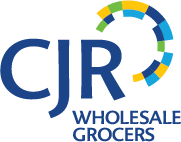The food and beverage industry in Canada is dynamic and ever-evolving, driven by changing consumer preferences, technological advancements, and market demands. As a leading player in this industry, CJR Wholesale & DairyCentral is committed to staying ahead of these trends to provide our clients with the best products and services. In this blog post, we explore the latest wholesale trends in the Canadian food and beverage sector, offering insights that can help businesses adapt and thrive in this competitive landscape.
Rise of Plant-Based and Alternative Proteins
One of the most significant trends in the food and beverage industry is the increasing demand for plant-based and alternative protein products. Health-conscious consumers, environmental concerns, and dietary preferences are driving this shift. Products such as plant-based burgers, dairy-free milk, and meat alternatives are becoming staples in the Canadian diet.
Key Points:
- Increased Demand: Sales of plant-based products have surged, reflecting a growing consumer base. Companies are expanding their product lines to include a wide range of plant-based options, from meat substitutes like burgers, sausages, and deli slices to dairy alternatives such as milk, cheese, and yogurt. There are also innovations in plant-based snacks, desserts, and ready-to-eat meals.
- Product Innovation: Companies are continuously innovating, introducing new and improved plant-based options. By offering an extensive selection of innovative and trending plant-based products, you can differentiate your business in the market. This can include not only popular items but also niche products that cater to specific dietary needs or preferences.
- Business Opportunity: Grocers and Restaurants need to stock a diverse range of these products to meet retailer and consumer demand. Stocking plant-based products aligns with broader sustainability goals and can enhance your reputation as a supporter of environmentally friendly practices. This can be a compelling selling point for both retailers and consumers.
Focus on Health and Wellness
Health and wellness remain at the forefront of consumer preferences. Canadians are more mindful of their dietary choices, opting for products that promote health and well-being. This trend encompasses a wide range of products, from organic and non-GMO foods to functional beverages that offer added health benefits.
Key Points:
- Organic and Non-GMO: There is a growing preference for organic and non-GMO products, driving demand in the wholesale market. With a growing awareness of the potential health risks associated with synthetic pesticides and genetically modified organisms (GMOs), consumers are seeking alternatives that are perceived as safer and more natural.
- Functional Foods: Items such as probiotics, vitamins, and fortified foods are gaining popularity. Products containing beneficial bacteria cultures, such as yogurt, kefir, kombucha, and fermented foods, are known for their digestive health benefits and immune-boosting properties. Probiotic supplements are also increasingly sought after for their convenience and targeted health benefits.
- Health-Oriented Packaging: Clear labeling and health claims on packaging can attract health-conscious consumers. Transparent ingredient lists that clearly identify all components of a product, including additives, preservatives, and allergens, help consumers avoid unwanted ingredients and make choices that align with their dietary preferences and restrictions.
Sustainability and Ethical Sourcing
Sustainability and ethical sourcing have become critical factors for consumers when making purchasing decisions. This trend is influencing the wholesale food and beverage market, with a rising demand for products that are environmentally friendly and ethically produced.
Key Points:
- Eco-Friendly Products: There is an increased demand for products with sustainable packaging and eco-friendly practices. Eco-conscious consumers are drawn to products and brands that prioritize sustainable production methods, energy efficiency, and resource conservation. This includes efforts to minimize water usage, carbon emissions, and chemical pollutants throughout the supply chain.
- Ethical Sourcing: Consumers prefer products that are sourced ethically, with fair trade and responsible labor practices. Ethical consumers prioritize products that are produced under safe and humane working conditions, free from exploitation, child labour, and forced labour. This includes adherence to international labour standards and compliance with local laws and regulations.
- Transparency: Clear information about sourcing and sustainability practices on labels can boost consumer trust and loyalty. Brands that openly disclose their environmental impact, including carbon emissions, water usage, and waste generation, demonstrate accountability and a commitment to sustainability.
Convenience and Ready-to-Eat Products
The busy lifestyles of many Canadians have led to a growing demand for convenience foods and ready-to-eat products. This trend is evident in the increasing popularity of meal kits, pre-packaged meals, and on-the-go snacks.
Key Points:
- Meal Kits: Ready-to-cook meal kits that offer convenience without sacrificing quality are highly sought after. Meal kits prioritize high-quality, fresh ingredients sourced from local suppliers whenever possible. By using fresh produce, premium proteins, and chef-inspired recipes, meal kit companies ensure that consumers enjoy restaurant-quality meals in the comfort of their own homes.
- Pre-Packaged Meals: Healthy, ready-to-eat meals that save time for consumers are becoming more popular. Pre-packaged meals eliminate the need for meal prep, cooking, and cleanup, making them a time-saving option for consumers with hectic schedules. Whether it’s a busy weekday dinner or a quick lunch at the office, pre-packaged meals offer a convenient solution for busy lifestyles.
- Snack Innovations: On-the-go snacks that are both nutritious and convenient are in high demand. Protein-rich snacks such as jerky, meat sticks, cheese sticks, and hard-boiled eggs are a convenient option for consumers looking for a quick and satisfying source of protein to fuel their active lifestyles. These portable snacks are shelf-stable and require no refrigeration, making them an ideal option for on-the-go snacking.
Technological Integration
Technology is playing an increasingly important role in the food and beverage industry. From supply chain management to customer engagement, technological advancements are shaping the way businesses operate and interact with consumers.
Key Points:
- Supply Chain Optimization: Technology is improving efficiency and transparency in the supply chain. Technology solutions such as inventory management software, warehouse automation systems, and transportation management platforms optimize the flow of goods from suppliers to retailers. These tools help minimize inefficiencies, reduce costs, and increase productivity by automating manual processes and streamlining operations.
- E-commerce Growth: The rise of online shopping platforms has expanded the reach of food and beverage products. Online shopping offers consumers greater convenience and flexibility, allowing them to browse and purchase products anytime, anywhere, from the comfort of their homes or on the go. This convenience factor is particularly appealing to busy individuals, urban dwellers, and those with limited access to physical stores.
- Data Analytics: Leveraging data to understand consumer preferences and optimize inventory is becoming standard practice. Advanced forecasting models and predictive analytics algorithms help companies forecast demand, anticipate trends, and optimize inventory levels. By accurately predicting demand fluctuations and seasonality, companies can minimize stockouts, reduce excess inventory, and improve inventory turnover rates.
Regional and Local Products
There is a growing trend towards supporting local economies and consuming regional products. This preference for local sourcing is driven by a desire for fresh, high-quality products and support for local farmers and producers.
Key Points:
- Local Sourcing: Consumers are increasingly interested in products sourced locally within Canada. Buying locally sourced products allows consumers to connect with their local communities and support small-scale producers, farmers, and artisans. By purchasing directly from local businesses, consumers can contribute to the economic vitality and vibrancy of their neighborhoods.
- Freshness and Quality: Local products are often perceived as fresher and of higher quality. Local producers often prioritize quality over quantity, focusing on sustainable farming practices, heritage varieties, and artisanal craftsmanship. By cultivating close relationships with local producers and farmers, consumers can gain insight into production methods and ensure transparency and accountability in the food supply chain.
- Economic Support: Buying local supports the local economy and reduces carbon footprints.Local agriculture, food production, and food retailing create jobs and economic opportunities for residents, contributing to the vitality and resilience of local economies. By supporting local businesses, consumers can help create and sustain employment opportunities in their communities.
The food and beverage industry in Canada is witnessing several exciting trends that are reshaping the market. From the rise of plant-based products to the emphasis on sustainability and technological integration, these trends present numerous opportunities for businesses to grow and succeed. At CJR Wholesale & DairyCentral, we are dedicated to helping our clients navigate these trends by providing high-quality products and innovative solutions. By staying informed and adaptable, businesses can thrive in this ever-changing industry!










